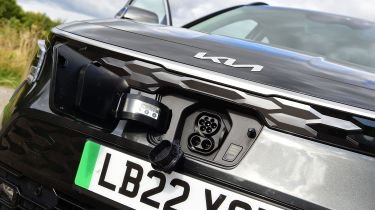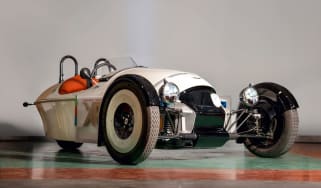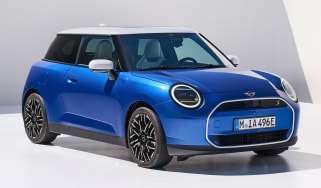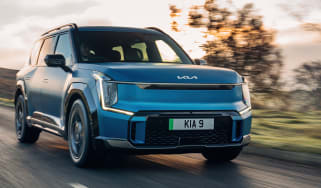MG4 EV vs Kia Niro EV: range and charging
The MG’s 135kW rapid charging speeds are impressive at this price, but the superior efficiency of the Niro EV pays dividends on the road

Unlike the old e-Niro, which was available with a choice of 39kWh and 64kWh batteries, the Niro EV is only offered with a 64.8kWh unit that’s used to power a single electric motor. Because it’s not that different to the e-Niro’s running gear, range is almost unchanged, increasing from 282 to 285 miles. That’s still a respectable figure for an electric family car and compared with the Niro EV’s competition, but it’s a shame it can’t quite crack the 300-mile mark.
The MG4 on the other hand is available with two battery sizes at launch, and a third is being introduced in 2023. Entry-level models come with a 54kWh battery and 218-mile range, while Long Range models like the one we drove are fitted with a 64kWh unit that in our Trophy-spec car is good for a range of 270 miles. You can boost that figure to 281 miles if you stick with the SE trim, but an Extended Range version is set to arrive in 2023, capable of nearly 330 miles on a charge thanks to an even larger 77kWh battery.
In the meantime however, the Kia was the more efficient of the two during our testing, returning 3.9 miles per kWh on average, which equates to a real-world range of around 250 miles. That’s an impressive performance in its own right, but especially when compared to the MG4 which was only able to muster 3.5 miles per kWh for an indicated 216-mile range.
Charging
Neither the Kia or MG offers the lightning-fast charging speeds of cars like the Porsche Taycan, but the Niro EV does lag behind the MG4 significantly in this department. While the MG4 is capable of competitive 135kW speeds – the same as its main rivals the Volkswagen ID.3 and Cupra Born – the Niro EV can only manage 88kW, which is only slightly faster than the e-Niro it replaced.
Find a rapid charger capable of 150kW or faster and the Kia will take 45 minutes to go from 10-80% charge, meanwhile the MG4 will need just 35 minutes. Due to their similar battery sizes, both cars take around 10 hours to fully recharge from flat using a 7.4kW home wallbox.



